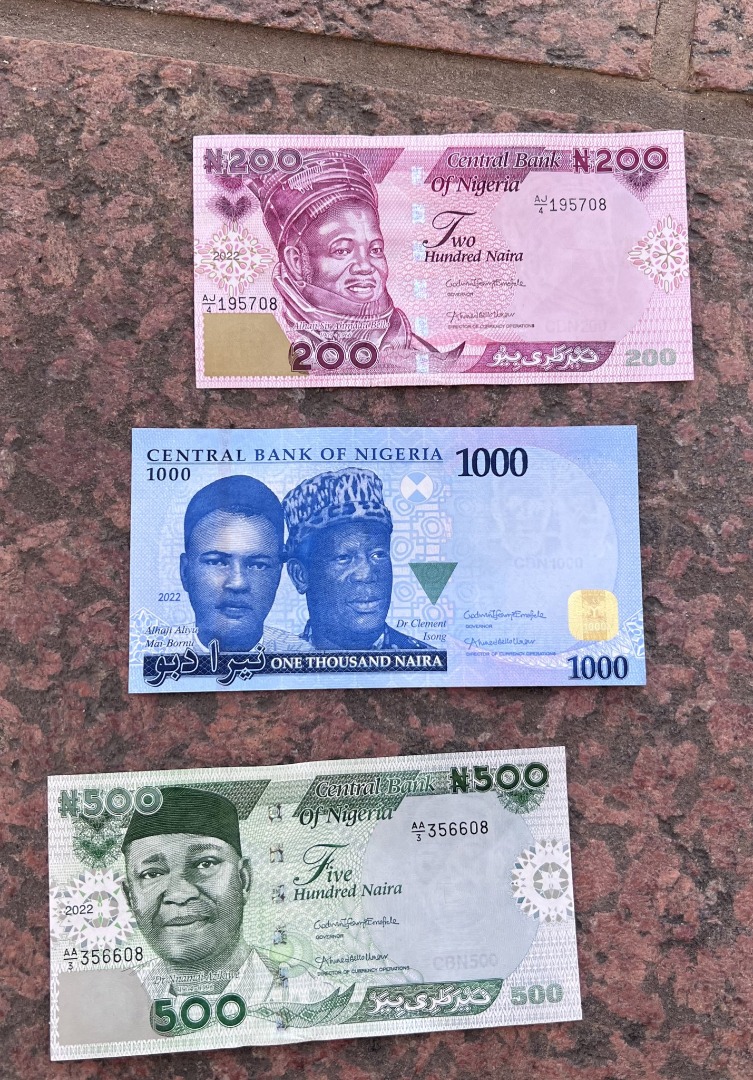The Central Bank of Nigeria will need to take extra measures to ensure a smooth transition to its redesigned naira notes. Considering that the redesigned naira notes are supposed to be in circulation as of December 15th, leading to the withdrawal of the old notes at the end of January 2023, it is disconcerting that there has been an acute shortage of the new naira notes in the country since their launch.
The redesigned notes have not been properly rolled out yet, and Nigerians who go to the banks have the old notes dumped on them. This should not have been the situation since December 15, when banks should be reabsorbing the old notes, not disgorging them.
The circumstances in which the redesign was announced only a few weeks ago, the fact that the redesign has failed to impress Nigerians, and the staggered way it is being rolled out, give cause to believe that the entire operation was hurriedly conceived and executed. This is the first time in 17 years that the CBN will be reissuing new banknotes or redesigning its current ones in keeping with the CBN’s currency management function.
Nothing has happened on this front since the CBN rolled out the N1000 note in 2005. Godwin Emefiele, the CBN governor, acknowledged that new legal tenders should be reissued every 5-8 years. That clearly hasn’t happened, resulting in the proliferation of old and tattered banknotes in the country.
The reasons for this redesign, the CBN informed, are to improve the security features in the larger denominations, and curtail counterfeiting and hoarding of the currency. Data made available by the bank indicates that 85 per cent of banknotes in circulation are outside the vaults of commercial banks. It is also true that the country has a counterfeiting problem. The CBN’s 2020 Currency Report indicates that a total of 67,265 pieces of counterfeit notes with a nominal value of N56.83 million were confiscated in 2020, a 20.80% decrease in volume and 12.18% decrease in value, compared with 84,934 pieces valued at N64.71 million in 2019.
The global standard for the number of counterfeits per million is 100. The ratio of counterfeit notes to the volume of banknotes in circulation in Nigeria was 13 pieces per million in 2020, compared to 20 pieces per million banknotes in 2019. And even as we acknowledge this as an operational decision, the CBN needs to handle this operation with greater competence and skill. We agree that the redesign and the short window given will compel currency hoarders to bring out the currency in their possession. But the CBN needed to have planned for an adequate amount of the new banknotes to be on hand to take the place of the old ones. Most crucially, awareness needs to be created.
Already, we have seen numerous video clips of traders and service providers rejecting the redesigned notes, often with violent consequences, because they are unaware of the redesign. This raises questions about whether the CBN has put in place the necessary mechanisms to protect unbanked Nigerians in rural areas. The CBN needs to ensure adequate plans are made to protect these vulnerable populations so they don’t lose money.
Similarly, there have been reports that the newly redesigned notes are already being counterfeited. If true, this raises the question of whether the CBN has put in place enough safeguards against counterfeiting the new notes. Indeed, in appearance, many Nigerians have not taken to the new notes and think they are inferior to the old notes in print quality, not to mention design. This may be the result of poor public communication campaigns for the new notes. But the scarcity of the redesigned notes, if not their rather dull appearance, is damaging public confidence in them, especially for those in small towns and rural areas. This could inevitably lead to confusion when the deadline for the full withdrawal of the old naira notes expires on 31st January 2023.
Overall, the CBN’s currency policy has been floundering. These policies may have contributed to the pressure on the naira against the dollar and other foreign currencies, which in turn could worsen the galloping inflation in the country at present.
Therefore, to preserve its credibility in the eyes of Nigerians, and to achieve the lofty objective of preventing money laundering, for which the redesign was instituted in the first place, the apex bank must shift into gear to ensure a smooth transition to the redesigned notes by making them sufficiently available immediately, and creating awareness for their acceptance and use among Nigerians, particularly the unbanked. Nigeria has had enough of having good policies destroyed by poor implementation.

 Join Daily Trust WhatsApp Community For Quick Access To News and Happenings Around You.
Join Daily Trust WhatsApp Community For Quick Access To News and Happenings Around You.


